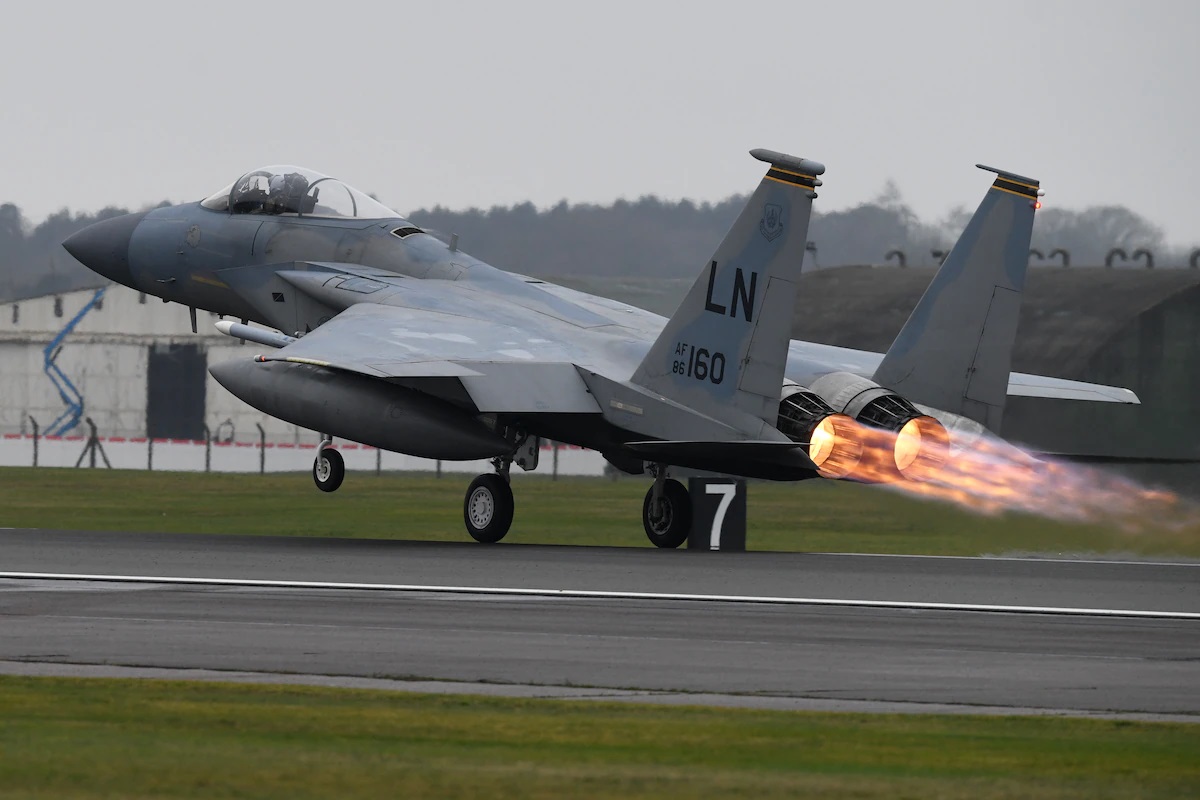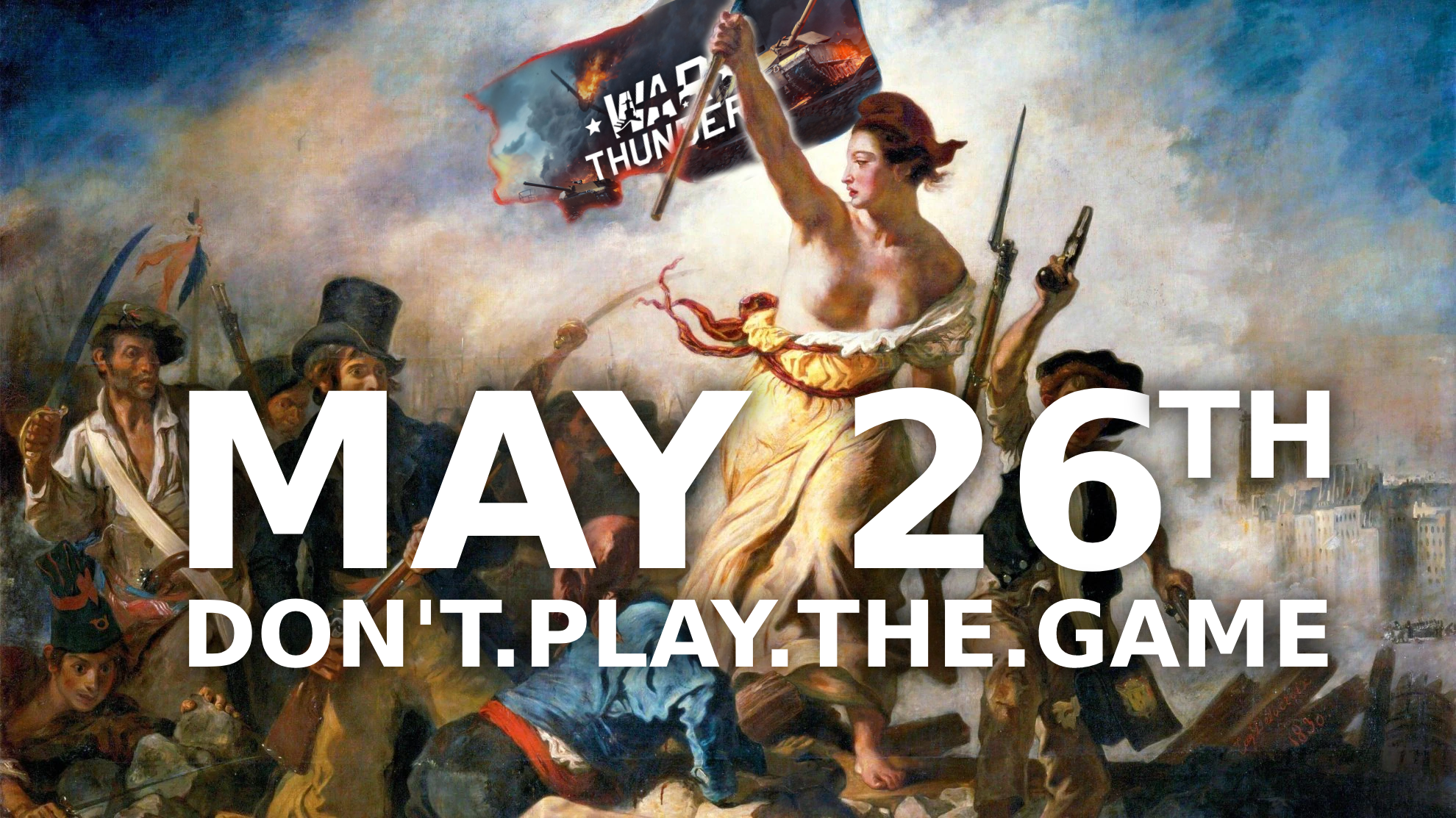War Thunder fans organise extraordinary review bombing campaign over reverted economy changes, studio pleads: 'If your goal is not to hurt the game, please use other, less destructive ways'
"It's become pretty well as bad as most Gacha games."

War Thunder is generally in the news because some of its players, if you'll excuse the phrase, are a little extreme. War Thunder is a free-to-play competitive game where a large part of the appeal is how accurately different military vehicles are represented, and arguments over the depiction of things like a tank's turret have seen actual military secrets deployed in order to win forum arguments. War Thunder players take War Thunder very seriously. And for once they're not mad at each other, but at developer Gaijin Entertainment.
The game has suffered an absolutely extraordinary and sustained review bombing campaign over the last week. It currently shows as 'overwhelmingly negative' on Steam's recent reviews and the overall rating has dropped to 'mixed'. One player who has 2,200 hours on the game left a negative review saying, not entirely convincingly, "look at my hours. How many of them do you think I was actually happy while playing? I will never get that time back."
The reason for this is widespread resentment about both changes Gaijin has made to the game over recent years and a recently proposed change to the in-game economy that was not implemented. "The community has pushed back about [economy changes] for a long time," says Hector Sherlock, an avid War Thunder player, "and I'm afraid Gaijin finally lit the fuse which they have no way of putting out."
What lit the fuse was Gaijin's recent announcement of an 'Economy Update' for War Thunder. The original changes were made on May 16 and have subsequently been reverted, but are essentially a bunch of tweaks to the game's economy, which revolves around the currencies Silver Lions (SL), Research Points (RP), and the premium currency of Golden Eagles (GE). Players can subscribe to a premium account for increased rewards. SL is the most common element and is used to buy units, mods, and repair damaged vehicles after matches. The latter seems an especially acute pain point.
"They've made a point of reducing almost all rewards in-game, while increasing costs," says War Thunder player Tim Jamieson. "It's become pretty well as bad as most Gacha games, in terms of input/output. Furthermore, Gaijin has recently 'unfoldered' many vehicles in the game. What this means is essentially forcing players to research minor variations of vehicles that they weren't before, artificially increasing the grind by about 20%, at least."
So far, you may think, so normal. Games make unpopular changes all the time and, just as often, roll them back in the face of community reaction. But War Thunder players aren't built like that. The game has received just under 80,000 user reviews in the last 30 days, 91% of which are negative, and War Thunderers have established the War Thunder Player Union, which has its own Discord and is in the process of organising a boycott of the game from May 26.
This being, y'know, war, they've even got their own Kitchener memes and propaganda posters, on top of which the game is currently subject to an in-game chat copypasta that runs: "On the 26th of May, a two week blackout will be carried out in protest against Gaijin. r/WarthunderPlayerUnion for more info. Join the cause."
The biggest gaming news, reviews and hardware deals
Keep up to date with the most important stories and the best deals, as picked by the PC Gamer team.

There's an important point here, which is that Gaijin did not in fact make the changes it proposed. On May 19 it posted a blog saying that it was working on economy changes that would be implemented in the summer, without detailing them, and saying:
"We heard your recent feedback on the changes planned to the economy of War Thunder and, as you already know, have decided to cancel them. This has been our first step in addressing your concerns, and it will not be the last.
"We regret that our actions to balance the economy are often poorly explained and not transparent to you. In the future, we will try our best to talk about the changes we plan to do earlier, in more detail and more clearly, as well as listen to the feedback that you offer more carefully."
Gaijin has since provided a feedback form and encouraged players to give their opinions on the game's economy and any proposed changes. In addition to this, Gaijin posted an article by creative director Kirill Yudintsev that explains the principles of progression and monetisation in a free-to-play title like War Thunder. It ends by addressing the review-bombing of the game.
"Of course, a review on Steam is also a platform for expression," writes Yudintsev. "However, the majority of new players just look at the score evaluation, and do not read the text of reviews and do not go into what they were left for. So review bombing does damage to the game in that new players simply won't try it, while it doesn't raise their awareness of the problems you've noticed. If your goal is not to hurt the game, please use other, less destructive ways. For example, leave feedback in our forum, and suggestions specifically about the economy we are inviting in the feedback form. Also, review bombing will not cause modifying or nullifying in-game prices: if the game is shut down, no one wins."
Yudintsev says the studio tries to stick to a principle of "do no harm" when making changes to the game while being aware that any change no matter how small is likely to adversely impact some of its large playerbase.
Much of this may seem quite reasonable, but it has done absolutely nothing to mollify the War Thunder crowd (one player told us the feeling is that Yudintsev's explainer was "belittling"). Further to this, players have begun to claim that their voices are being silenced and there's some sort of concerted campaign on the part of the developer and various other authorities like forum moderators to stymie any criticism (this is one of the justifications for the player union, to escape 'official' channels).
"They're trying VERY hard to silence any and all community criticism and sentiment about these changes," claims player Tim Jamieson. "Things have reached a boiling point, and the playerbase is calling for a boycott on May 26, for two weeks. Not only that, there's a widespread call for review bombing and a total cessation of all spending on the game. Needless to say, the approach of the various social media arms of the company have been less than productive."
The War Thunder youtubers have now joined the call to arms. The brilliantly named Tankenstein says "Gaijin Has Lost Touch With The War Thunder Community And Economy" (below), while Tim's Variety has a video about the furore titled "War Thunder Economy Response: They Still Don't Get It". Pheges says simply "I'm Done With War Thunder."
"I understand that Gaijin needs to make money, and that they make money in part through people purchasing SL with golden eagles," says Tankenstein, "but to the extent that we have it now—where many people feel forced to have both premium accounts AND purchase SL—is ridiculous. This is where the slippery slope has led us, and we must climb back up to the top of the hill. We have fallen too far."
Tankenstein is getting to the crux of the matter here, which is that this explosion of anti-Gaijin sentiment is not something that's been sparked by a single blog post or one proposed economy change. It is abundantly clear that War Thunder players have a laundry list of grievances about the game's monetisation, and feel that over recent years the game has become 'worse' in this regard. The recently proposed changes were not in and of themselves the reason for this outpouring of anger: They're the straw that broke the camel's back.
Spookston, a Gaijin partner and probably the biggest War Thunder youtuber out there, has now joined the chorus, and the anti-Gaijin sentiment generally feels absolutely fixed.
I got in touch with Gaijin Entertainment about all this and asked a few questions. "The review bombing happened after the changes in question were already reverted," says Anton Yudintsev, founder of Gaijin. "These changes were nothing extreme, it was just a routine balancing patch (you can check the changes here). Anyway, we cancelled those changes last week as soon as we realized that our community did not like them.
"So right now the community is using the negative reviews as a way to express their desire for a change, rather than a backlash against a specific change. The game itself is now the same as it used to be two months ago (excepting routine bug fixes). This is a very fresh and new situation for both gamers and developers. We are ready for the change. Last week we announced that we’re working on a plan for a dedicated economy update, and right now we’re thinking that we’ll present the draft of that plan around June 14th."
Don't expect that to quieten things down. As well as the review bombing, the War Thunder community has proven itself remarkably organised and pro-active in back channels. I have received multiple emails about this from our tips line over the last week, meticulously documenting various aspects of the saga and providing links and commentary, as has the wider PC Gamer team, and several media outlets have already picked up the story.
It's easy enough to roll your eyes at Yet Another Game Boycott but this doesn't feel like a Modern Warfare 2 situation, so much as long-suppressed problems bubbling up to the surface and recrimination all round. War Thunder players are not happy and, when this lot get angry, the consequences feel quite unpredictable.

Rich is a games journalist with 15 years' experience, beginning his career on Edge magazine before working for a wide range of outlets, including Ars Technica, Eurogamer, GamesRadar+, Gamespot, the Guardian, IGN, the New Statesman, Polygon, and Vice. He was the editor of Kotaku UK, the UK arm of Kotaku, for three years before joining PC Gamer. He is the author of a Brief History of Video Games, a full history of the medium, which the Midwest Book Review described as "[a] must-read for serious minded game historians and curious video game connoisseurs alike."

